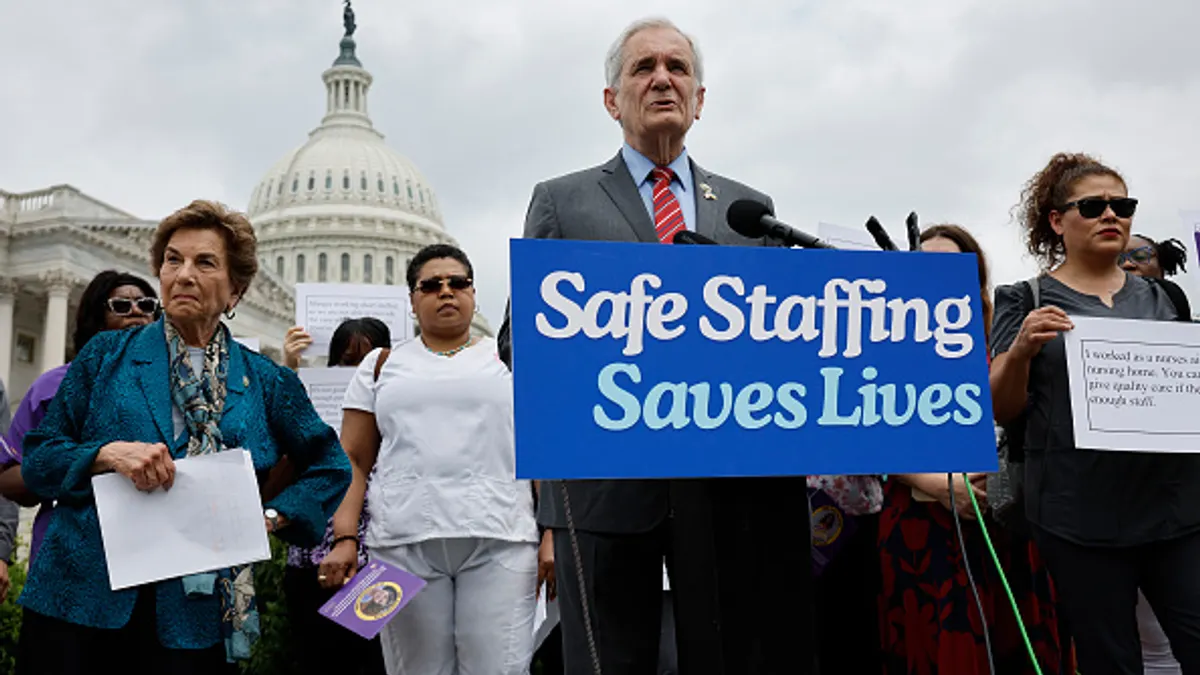Another year of targets, initiatives and benchmarks is upon us, and it's all going to take people. Even as HR professionals struggle to see the path forward with COVID-19 variants and public health responses, competitive employers will do more than just backfill headcount lost over the past two years, industry sources say.
Those that thrive in 2022 will align policies and behaviors that curb inequitable outcomes. To that end, female leaders in DEI and workforce management shared several predictions by email with HR Dive.
Companies will prioritize equal footing for all employees
Remote workers have experienced less favorable treatment, missed out on mentorship opportunities and seen less engagement with their teams, according to Kanarys CEO Mandy Price – a rolling deficit that can lead to fewer advancement opportunities. Still, in spite of these significant penalties that can land on those holding remote positions, generally, microaggressions aimed at many Black workers chill prospects of workplace re-entry.
Data will reveal equity gaps between work arrangements and compensation
Companies must track promotions, pay and opportunities for all employees, whether remote, in-office or hybrid, said Price. This data will help to uncover disproportionate effects of work arrangements on employee compensation.
Workers will reject the grind of 'hustle culture'
"Business goals and employee goals are at odds," Leeatt Rothschild of Packed with Purpose recently wrote about the current time in an op-ed for HR Dive. A mass exodus from the job market has resulted in acute shortages among employers, and it's not letting up, Price said. For sure, it's job seekers in this labor-tight market who hold the leverage as they search for more money, more flexibility and more happiness. "Employees crave deeper meaning," wrote Rothschild, "not 'just a job.'"
DEI efforts will expand to include those outside the walls of organizations
As DEI data compels new directions in corporate recruiting and retention, Aaisha Joseph, a DEI and anti-racism coach and consultant said she expects to see greater representation of veterans, first-gen students and individuals with disabilities across candidate pools.
To correct for the disproportionate impact of COVID-19 on Black and brown workers and women, "companies will re-think, and really shift to redefine what it means to be a diverse organization, and will look to hire accordingly," said Joseph, an alumni of the Congressional Black Caucus Foundation's Emerging Leaders program.
Increasingly, diversity will be reflected on boards of directors
Last year, California, New Jersey, and Illinois passed or considered legislation that required public companies to report on or commit to improving diverse leadership, particularly in the demographic composition of their boards of directors. In the new year, we'll see more regulation, reporting and diversification of boards, said Price, who is a former corporate lawyer.
Neurodiversity is diversity
"It's a watershed moment for workplace mental health," Lisa Moore, head of global business partnering, talent and people operations at Yahoo, previously wrote for HR Dive. Price agreed: "As employees start to head back into offices and return to a new normal of lingering health anxiety, it's simply not an option to ignore employees' mental and emotional wellness."
Neurodiversity refers to the "differences of brain functioning regarded as normal variations within the human population," according to Merriam Webster. Price cited a recent Bloomberg Law survey in which, of 72% of respondents that track diversity or well-being, only 17% reported that their organization tracks neurodiversity — making it the least-tracked diversity metric, according to Bloomberg Law.
Price said she believes that a holistic workplace approach to DEI means measuring and understanding both visible and invisible factors of the employee experience. She suggested that workplace environments boldly support mental health by offering mental health benefits on par with physical health benefits, and ensure easy access to those resources, without stigma.
By legislation or good will, we're closer to equal pay
"NYC recently passed a bill that will require employers to include a maximum and minimum salary in all job postings," Joseph wrote. Whether by corporate good will or legislation, this will take root in other regions. It's a step towards pay transparency and parity long-awaited by job seekers, candidates and employees alike.






















